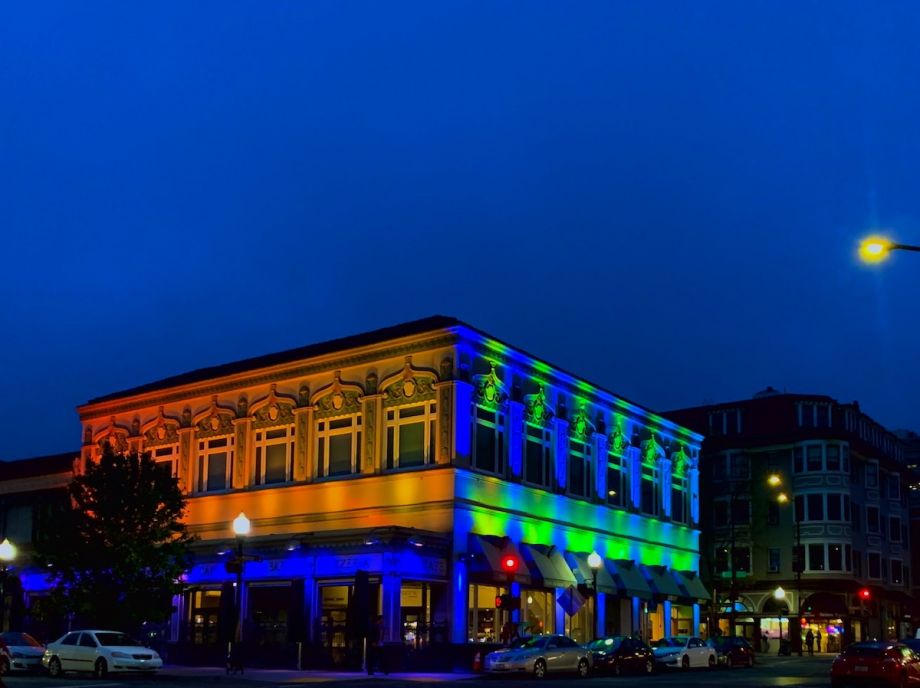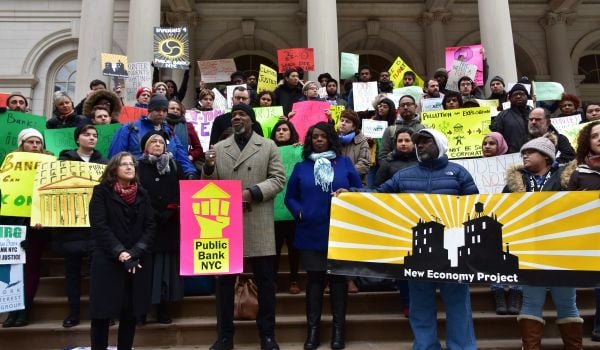Welcome back to The Weekly Wrap, our Friday round up of stories that explain the problems oppressing people in cities and elevate the solutions bringing us closer to economic, environmental and social justice! Do you have news or an event that should be in this newsletter? Email us details at wrapped@nextcity.org — and it might just get included in next week’s edition!
A Victory For Public Banking
A public bank in California’s East Bay is gaining more monumentum to become one of the first public banks to start operating since the state-owned Bank of North Dakota got established in 1919. It is the first public bank to hire a CEO in the last 100 years, according to a press release. Interest in establishing public banks has grown significantly in the last decade but many organizers continue the long push to get one created in their cities.
Austin’s Attempt To Build More Affordable Housing Seems To Be Working
Austin’s Affordability Unlocked (AU) allows developers to bypass some building rules if they promise to rent or sell at least half of the units they build to people earning low incomes, KUT reports. The ordinance was introduced in 2019 and aims to build 60,000 affordable housing units by 2027. Researchers at the Urban Institute took a look at this and other policies cities have established to spur more affordable housing development. “Early results suggest that AU is an effective bonus for developers looking to produce affordable housing,” they write in a recent report.
Denver’s Traffic Circles Halted By Moratorium
The Denver Fire Department has asked the city’s transportation to pump the breaks on installing more “traffic circles,” according to The Denver Gazette. The devices were framed as being “traffic calming” and a tool for reducing vehicle speeds but vehicles have had challenges in navigating them since they were installed.
Food Robot Company Provides LAPD With Surveillance Footage
In Los Angeles, a food delivery robot company that delivers orders from Uber East has provided the city’s police department with footage that its devices recorded, 404 Media reports. Video was used in a grand larceny case, in which two men were tried and convicted. “I think we can fully expect they will continue to share footage with the police,” Chris Gilliard, a surveillance justice expert and Just Tech fellow at the MacArthur Foundation, told 404 Media. “I think these companies need to anticipate these issues and get ahead of them.”
States Are Establishing Their Own Child Tax Credits
In case you missed this news, child poverty doubled in 2022 (compared to 2021) after Congress did not renew the pandemic enhancement to the child tax credit. Now some states — including New Mexico, New Jersey, Vermont, Oregon and Colorado, among others — are launching or expanding their own child tax credits, according to Stateline. Oregon’s new child tax credit, for example, “gives an annual benefit of up to $1,000 per child up to age 5 for families who earn up to $30,000 per year.” And in Minnesota, the tax credit provides $1,750 per child under 18 for single parents with annual incomes below $29,500 or married parents making less than $35,000.
MORE NEWS
-
Will Chicago be the first major city in the U.S. to run a grocery store? Perhaps. The municipally-owned grocer would address the food apartheid that residents on the city’s South and West sides experience. The Messenger
-
Here’s how states and cities are establishing stronger protections for gig economy workers, such as retirement, paid family leave and traditional workplace benefits. Stateline
-
Banks, credit unions and other financial institutions may soon have legal protection when offering services to state-legal marijuana businesses, with the Safe and Fair Enforcement Regulation (SAFER) Banking Act. PR via the Office of Sen. Kevin Cramer (R-ND)
-
Black-owned businesses on D.C.’s H Street face scrutiny from the neighhorbood’s Advisory Neighborhood Commission. DCist / WAMU
-
Community wind has not taken off like community solar did. But now might be the right time for it. Smart Cities Dive
RESOURCES
-
Our friends at Prism and Indiegraf have teamed up to offer journalism training and community media best practices to a cohort of 20 organizers who are interested in community news entrepreneurship. Applications are being accepted until October 13. Learn more and apply here.
-
A Little Better Co is accepting applications for its Unless Project, aimed at nonprofit with novel, transformational ideas but not a lot of cash. Selected organizations will each receive $150,000 in services and resources and a grant. The first cohort begins in January 2024. Applications due by October 15. Learn more and apply here.
-
The Black Futures Lab, in partnership with the Robert Wood Johnson Foundation, is accepting applications for its Black Organizing Innovations Project. It will be awarding grants of up to $250,000 to community organizations working to engage and activate Black men ahead of the 2024 election and beyond. The deadline to apply is November 1. Learn more and apply here.
This article is part of The Weekly Wrap, a newsletter rounding up stories that explain the problems oppressing people in cities and elevate the solutions bringing us closer to economic, environmental and social justice. Click here to subscribe to The Weekly Wrap newsletter.

Deonna Anderson is Next City's editorial director. An award-winning journalist, she has served as a senior editor at GreenBiz and worked with YES! Magazine, KLCC (an NPR affiliate station in Eugene, Oregon), The Lily, Atmos and other media outlets. Anderson is an alumna of the University of California, Davis and the Craig Newmark Graduate School of Journalism at CUNY. She lives in the Bay Area. She was also Next City's 2017-2018 Equitable Cities Reporting Fellow. Follow her on Twitter @iamDEONNA.
Follow Deonna .(JavaScript must be enabled to view this email address)


















